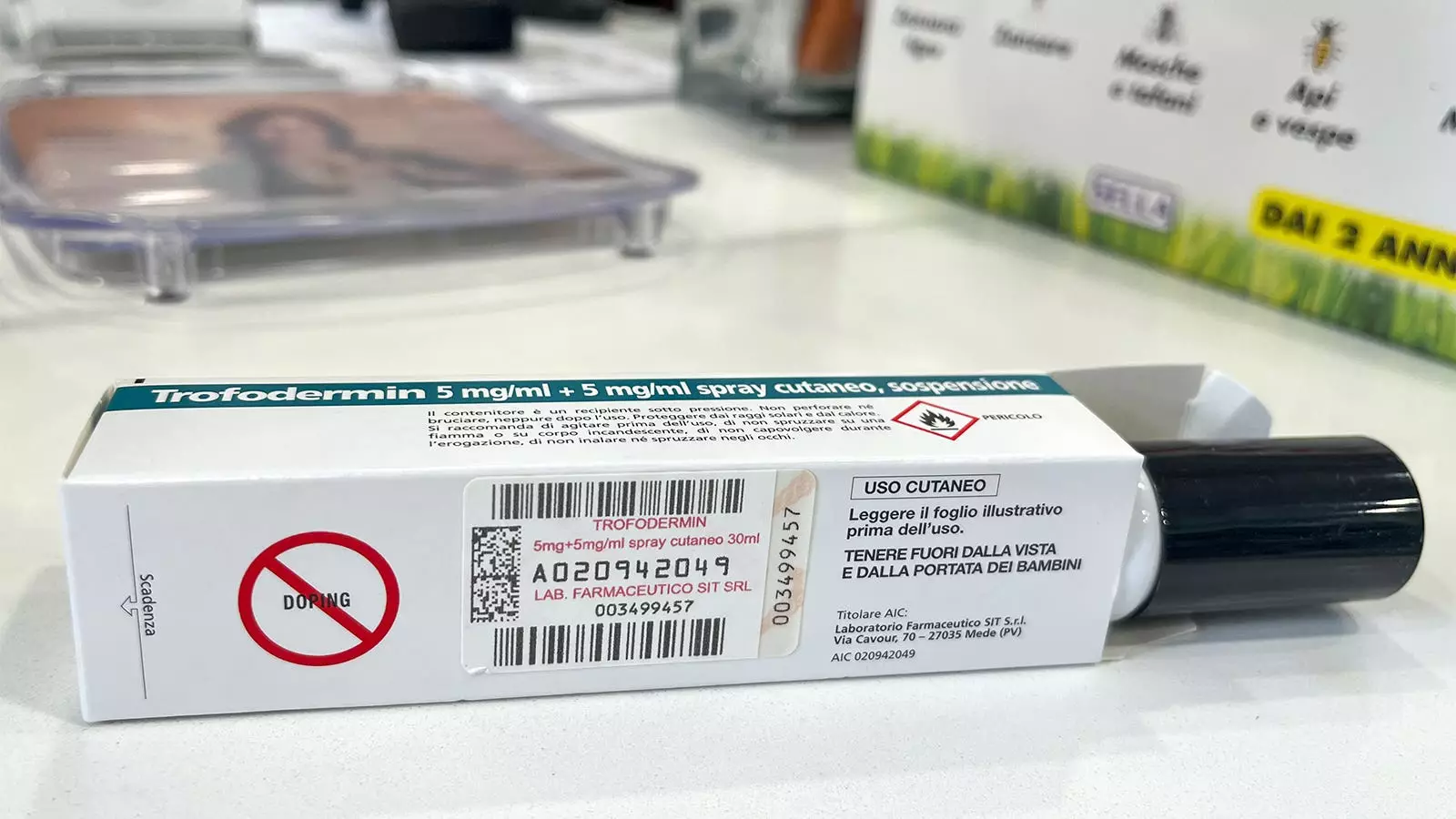The recent incident involving No. 1-ranked tennis player Jannik Sinner and his failed drug tests due to the use of an over-the-counter spray containing the banned anabolic steroid clostebol highlights the dangers and complexities surrounding the use of such medications in professional sports. Despite being cleared of any intentional wrongdoing, Sinner’s case sheds light on the presence of performance-enhancing substances in seemingly harmless products available without a prescription.
Trofodermin, the over-the-counter spray at the center of the controversy, is readily available in Italy without a prescription. This medication, meant for treating cuts and scrapes, contains a warning in Italian cautioning against its use by athletes, as it can lead to positive anti-doping tests. The accessibility of Trofodermin raises questions about the responsibility of both consumers and healthcare providers in ensuring compliance with anti-doping regulations.
According to Italian lawyer Giovanni Fontana, who has represented numerous athletes facing doping charges, the prevalence of clostebol-related cases linked to Trofodermin underscores the need for stricter oversight and enforcement. Fontana’s assertion that the warning label on Trofodermin is only visible on the box and not the product itself highlights potential loopholes in the regulation of such medications. Moreover, the possibility of legal action against individuals involved in the distribution and administration of Trofodermin, as suggested by Fontana, raises concerns about accountability and consequences in cases of unintentional doping violations.
The World Anti-Doping Association and Nado Italia, Italy’s anti-doping agency, play a crucial role in overseeing and enforcing anti-doping regulations in sports. The potential for appeals and further investigations in cases like Sinner’s underscores the complexity and challenges faced by anti-doping agencies in identifying and addressing unintentional doping incidents. Additionally, the comparison to similar cases in other sports, such as the suspension of a club doctor in Italian soccer for administering Trofodermin to a player, highlights the need for consistency and deterrence in anti-doping measures.
As the international sports community grapples with the implications of inadvertent doping violations, there is a pressing need for enhanced education and awareness initiatives targeting athletes, healthcare providers, and the general public. Improved labeling and packaging requirements for medications containing banned substances, as well as ongoing training for athletes and support staff on the risks associated with over-the-counter products, are essential steps in preventing future incidents like Sinner’s. Moreover, collaborative efforts between regulatory authorities, sports organizations, and medical professionals are critical in addressing the complex interplay between healthcare and anti-doping regulations.
The case of Jannik Sinner serves as a cautionary tale about the unintended consequences of using over-the-counter medications in professional sports. By examining the legal, regulatory, and educational aspects of this incident, stakeholders can work towards implementing safeguards and protocols that minimize the risk of unintentional doping violations. The lessons learned from Sinner’s experience should prompt a broader conversation about the intersection of healthcare, sports ethics, and anti-doping practices in safeguarding the integrity of competitive sports.


Leave a Reply